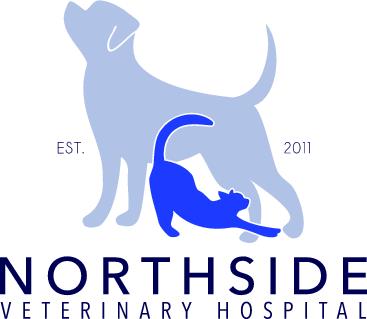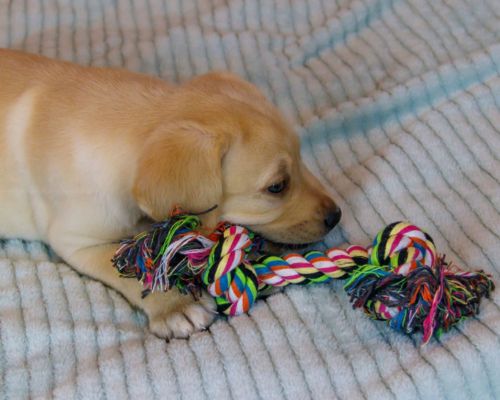Pet Mandibular Wire
Dealing with your pet’s broken jaw can be a daunting task. It can be challenging to take care of your pet as it heals from surgery, as it also goes through various challenges while recovering and adjusting to the new changes.
Pet Mandibular Wire in Shawnee, OK
At Northside Veterinary Hospital, we walk with you every step of the way and help you treat and take care of your pet as they recover from a broken jaw. Read on to learn more about the mandibular fracture.
Fractures of the Mandible (Lower Jaw) in Dogs
The mandible (lower jaw) is robust and hard; breaking it requires a lot of force. Trauma is the most common cause of mandibular fractures in pets. It can result from motor vehicle accidents, altercations with other dogs, falling from a significant height, or physical abuse. Other causes include:
- Severe periodontal disease
- Nutritional disorders
- Genetic disorder
- Endocrine disorder
- Abnormal set of puppy teeth
- During extraction of a diseased tooth
- Cyst
- Animal bite
- Tumor
Types of Fractures
Fractures can occur anywhere, from the temporomandibular joint (TMJ) or along the midpoint of the jaw. Types of fractures include:
- Open and closed fractures: Open fractures break through the skin, while closed fractures do not break the skin.
- Comminuted fracture: The bone is shattered into multiple small pieces from high-velocity injuries like a car accident, falling from a high distance, or a gunshot.
- Simple fracture: This is a fragmental break in the continuity of the bone without disrupting the typical structure of the bone.
Signs of Mandibular Fracture
Watch out for the following signs in your dog:
- Drooling
- Scratching or rubbing at the jaw
- Whining
- Pain in the jaw area
- Swelling in the facial area
- Depression
- Blood in the nasal passages
- Inability to eat
- Anxiety
- Broken teeth
- Mouth bleeding
- Difficulty opening and/or closing the mouth
- Visible injury to the face
Diagnosis of Mandibular Fracture
Your veterinary surgeon will conduct a thorough physical exam, take your dog’s medical history, get details of the incidence, and ask when the symptoms started. Temperature, blood pressure, and heart rate will also be taken. Your dog may have to be anesthetized in order to conduct a full assessment. Further tests include:
- A complete orthopedic examination
- Chest radiographs (X-ray) and
- Mandible radiographs
- Complete neurological exam
To determine the extent of damage and if the cause of the fracture is unknown, additional tests may be carried out, including:
- Glucose test (blood sugar level)
- Urinalysis
- Blood clotting test
- Blood chemistry panel
- Complete blood count (CBC)
- Bacterial and/or fungal culture if an infection is present
- Biopsy if a tumor is discovered
Treatment of Mandibular Fracture
Treatment is meant to reestablish the dog’s occlusion (the contact between teeth) functionality, avoid teeth damage and create a stable fixation that encourages proper healing and functionality. Treatment depends on the anatomic area, the severity of the condition, and the type of fracture. The following are some of the treatment options for mandibular fractures:
- For a closed mandible fracture, intraoral splints with a wire base hold the jaw in place as it heals. Splints are easily placed and do not require a complicated surgical procedure. They are preferred because they create stability on the tension side of the break for proper alignment during the healing process.
- Open or comminuted fractures require surgery to replace or repair the shattered bones.
- Pain medication and antibiotics to fight infections may be given at the hospital and after discharge.
- Trauma-related mandibular fractures require emergency care for conditions caused by trauma before fracture repair.
- Metabolic disorders are treated once the fracture has been fixed.
- Some fractures can be treated without surgery by placing muzzle tape on the dog’s snout to stabilize the fracture.
- Dental cleaning and tooth extraction for dental disease (periodontitis).
- Cyst removal if the veterinarian deems it necessary.
- Mandibular symphysis fractures are treated with a cerclage wire which aligns the bones.
- Bone plates and crews stabilize single or comminuted fractures by holding the bone ends together.
Mandibular Fracture Recovery
Recovery depends on the severity of the condition and your dog’s overall health. Postoperative care includes preparing a soft liquid or solid diet made into a gruel-like consistency to minimize jaw movement around the fractured area. In some cases, a feeding tube is placed into the esophagus initially to assist and adapt to assistance feeding. Daily rinsing after meals is required to keep the mouth clean.
Restrict activities like jumping, playing, and running for several weeks until your dog fully recovers. The duration of restriction will depend on the severity of the injuries and if there are other additional injuries.
Take your dog for short walks on a leash to exercise and get fresh air, especially when the day is cooler. This is essential for dogs treated with immobilization or fixation, which prevents them from opening and closing their mouth. This is because dogs regulate temperature by panting, and immobilization may lead to an increase in temperature.
After several weeks, follow-up appointments are necessary to monitor healing progress. The jaw might need radiography again to confirm the recovery and to prevent other occurrences. If recovery goes well, wires will be removed, the dog can resume a regular diet, and the activity level may return to normal.
Discourage your dog from chewing bones, toys, or playing with other animals to avoid putting pressure on the fracture and slow healing. Remember to regularly check the muzzle for accumulation of food debris to prevent dermatitis. It is essential to follow your vet’s advice to avoid any complications and for a speedy recovery.
At Northside Veterinary Hospital, we care about your furry friend’s health. Our friendly and compassionate staff provides high-quality care for your pets during their treatment and recovery after a mandibular fracture. Contact us today for more information or to schedule an appointment.

